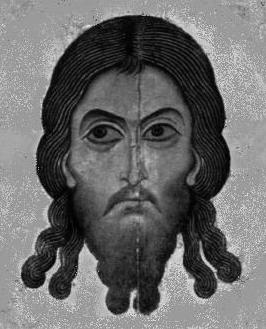 Birth: After Jesus (6 BC). Death: 61 AD
Birth: After Jesus (6 BC). Death: 61 ADJames the brother of Jesus is named in Matthew 13:55 and Mark 6:3, along with three other brothers (Joseph [or "Joses"], Simon and Judas [Jude]) and at least three sisters unnamed (the most explicit reference to these sisters in the canon being found in Matthew 13:56, "Aren't all his sisters with us?").
The Gospels indicate that neither James nor his brothers were followers of their elder brother before his crucifixion, but after the resurrection they are mentioned among the group at prayer before Pentecost (Acts 1:14). Paul mentions that the risen Jesus appeared personally to James, which may explain the change in heart (1 Cor. 15:7).
It seems that James quickly took the lead of the Church in Jerusalem, officiating at the Council of Jerusalem, thus he is viewed as one who did not oppose the lack of Jewish restrictions of Gentile believers.
In his letter to the Galatians, Paul mentions James along with John son of Zebedee, and Peter as the Pillars of the Church (2:9).
James was well enough known that in the New Testament epistle carrying his name, he refers to himself simply as "James, a servant of God and the Lord Jesus Christ" (James 1:1). To further evidence that James was well-known, Jude (the youngest of Jesus' brothers) simply identifies himself as James' brother, and a servant of the Lord in his letter (Jude 1). (See "author" section in Jude for why the brothers didn't identify themselves as the brothers of Jesus.)
In 61 AD James was executed at the instigation of the high priest Ananus. In the following centuries legends developed surrounding James, none of which are very reliable, but included the possibility that he was known as "James the Just" due to his amazing (Jewish) piety. Recently a burial box is said to have been found containing the bones of James, and giving further evidence to the existence of Jesus (as the inscription on the box reads: "James, son of Joseph, brother of Jesus"), but it has been found to have been an elaborate fake. (See original story from the Biblical Archaeology Society and a CNN review of some later findings.)
His epistle is well-known for its seeming anti-Pauline theology: "...a person is justified by what he does and not by faith alone" (James 2:24). However, it is clear when read in context, that James was arguing against the belief (or similar) that faith and a total disregard for a faithful life was sufficient for salvation through Christ. Rather, James says, "Show me your faith without works and I'll show you my faith by what I do" (2:18).
James' point is that salvation is by faith over and above all else, but true faith will be expressed through actions - how can you say that you believe in God yet totally ignore him, trusting that your belief that the Cross had saving power is enough? You can't. In this way then, a person is justified by what they do, as an expression of their faith.